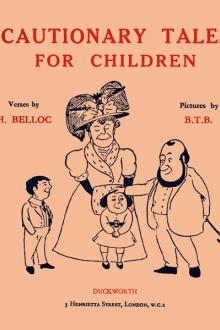Wieland; Or, The Transformation: An American Tale, Charles Brockden Brown [reading diary .txt] 📗

- Author: Charles Brockden Brown
Book online «Wieland; Or, The Transformation: An American Tale, Charles Brockden Brown [reading diary .txt] 📗». Author Charles Brockden Brown
What I had heard was surely the dictate of phrenzy, or it was built upon some fatal, some incomprehensible mistake. After the horrors of the night; after undergoing perils so imminent from this man, to be summoned to an interview like this; to find Pleyel fraught with a belief that, instead of having chosen death as a refuge from the violence of this man, I had hugged his baseness to my heart, had sacrificed for him my purity, my spotless name, my friendships, and my fortune! that even madness could engender accusations like these was not to be believed.
What evidence could possibly suggest conceptions so wild? After the unlooked-for interview with Carwin in my chamber, he retired. Could Pleyel have observed his exit? It was not long after that Pleyel himself entered. Did he build on this incident, his odious conclusions? Could the long series of my actions and sentiments grant me no exemption from suspicions so foul? Was it not more rational to infer that Carwin's designs had been illicit; that my life had been endangered by the fury of one whom, by some means, he had discovered to be an assassin and robber; that my honor had been assailed, not by blandishments, but by violence?
He has judged me without hearing. He has drawn from dubious appearances, conclusions the most improbable and unjust. He has loaded me with all outrageous epithets. He has ranked me with prostitutes and thieves. I cannot pardon thee, Pleyel, for this injustice. Thy understanding must be hurt. If it be not, if thy conduct was sober and deliberate, I can never forgive an outrage so unmanly, and so gross.
These thoughts gradually gave place to others. Pleyel was possessed by some momentary phrenzy: appearances had led him into palpable errors. Whence could his sagacity have contracted this blindness? Was it not love? Previously assured of my affection for Carwin, distracted with grief and jealousy, and impelled hither at that late hour by some unknown instigation, his imagination transformed shadows into monsters, and plunged him into these deplorable errors.
This idea was not unattended with consolation. My soul was divided between indignation at his injustice, and delight on account of the source from which I conceived it to spring. For a long time they would allow admission to no other thoughts. Surprize is an emotion that enfeebles, not invigorates. All my meditations were accompanied with wonder. I rambled with vagueness, or clung to one image with an obstinacy which sufficiently testified the maddening influence of late transactions.
Gradually I proceeded to reflect upon the consequences of Pleyel's mistake, and on the measures I should take to guard myself against future injury from Carwin. Should I suffer this mistake to be detected by time? When his passion should subside, would he not perceive the flagrancy of his injustice, and hasten to atone for it? Did it not become my character to testify resentment for language and treatment so opprobrious? Wrapt up in the consciousness of innocence, and confiding in the influence of time and reflection to confute so groundless a charge, it was my province to be passive and silent.
As to the violences meditated by Carwin, and the means of eluding them, the path to be taken by me was obvious. I resolved to tell the tale to my brother, and regulate myself by his advice. For this end, when the morning was somewhat advanced, I took the way to his house. My sister was engaged in her customary occupations. As soon as I appeared, she remarked a change in my looks. I was not willing to alarm her by the information which I had to communicate. Her health was in that condition which rendered a disastrous tale particularly unsuitable. I forbore a direct answer to her inquiries, and inquired, in my turn, for Wieland.
"Why," said she, "I suspect something mysterious and unpleasant has happened this morning. Scarcely had we risen when Pleyel dropped among us. What could have prompted him to make us so early and so unseasonable a visit I cannot tell. To judge from the disorder of his dress, and his countenance, something of an extraordinary nature has occurred. He permitted me merely to know that he had slept none, nor even undressed, during the past night. He took your brother to walk with him. Some topic must have deeply engaged them, for Wieland did not return till the breakfast hour was passed, and returned alone. His disturbance was excessive; but he would not listen to my importunities, or tell me what had happened. I gathered from hints which he let fall, that your situation was, in some way, the cause: yet he assured me that you were at your own house, alive, in good health, and in perfect safety. He scarcely ate a morsel, and immediately after breakfast went out again. He would not inform me whither he was going, but mentioned that he probably might not return before night."
I was equally astonished and alarmed by this information. Pleyel had told his tale to my brother, and had, by a plausible and exaggerated picture, instilled into him unfavorable thoughts of me. Yet would not the more correct judgment of Wieland perceive and expose the fallacy of his conclusions? Perhaps his uneasiness might arise from some insight into the character of Carwin, and from apprehensions for my safety. The appearances by which Pleyel had been misled, might induce him likewise to believe that I entertained an indiscreet, though not dishonorable affection for Carwin. Such were the conjectures rapidly formed. I was inexpressibly anxious to change them into certainty. For this end an interview with my brother was desirable. He was gone, no one knew whither, and was not expected speedily to return. I had no clue by which to trace his footsteps.
My anxieties could not be concealed from my sister. They heightened her solicitude to be acquainted with the cause. There were many reasons persuading me to silence: at least, till I had seen my brother, it would be an act of inexcusable temerity to unfold what had lately passed. No other expedient for eluding her importunities occurred to me, but that of returning to my own house. I recollected my determination to become a tenant of this roof. I mentioned it to her. She joyfully acceded to this proposal, and suffered me, with less reluctance, to depart, when I told her that it was with a view to collect and send to my new dwelling what articles would be immediately useful to me.
Once more I returned to the house which had been the scene of so much turbulence and danger. I was at no great distance from it when I observed my brother coming out. On seeing me he stopped, and after ascertaining, as it seemed, which way I was going, he returned into the house before me. I sincerely rejoiced at this event, and I hastened to set things, if possible, on their right footing.
His brow was by no means expressive of those vehement emotions with which Pleyel had been agitated. I drew a favorable omen from this circumstance. Without delay I began the conversation.
"I have been to look for you," said I, "but was told by Catharine that Pleyel had engaged you on some important and disagreeable affair. Before his interview with you he spent a few minutes with me.





Comments (0)